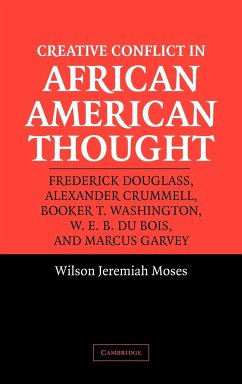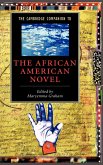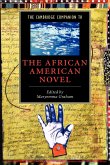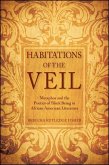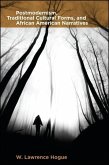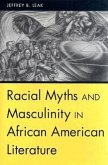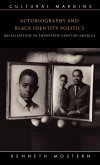Essays that focus on the complexity of the thought of five major African-American intellectuals.
Building upon his previous work and using Richard Hofstadter's The American Political Tradition as a model, Professor Moses has revised and brought together in this book essays that focus on the complexity of, and contradictions in, the thought of five major African-American intellectuals: Frederick Douglass, Alexander Crummell, Booker T. Washington, W. E. B. DuBois and Marcus M. Garvey. In doing so, he challenges both popular and scholarly conceptions of them as villains or heroes. In analyzing the intellectual struggles and contradictions of these five dominant personalities with regard to individual morality and collective reform, Professor Moses shows how they contributed to strategies for black improvement and puts them within the context of other currents of American thought, including Jeffersonian and Jacksonian democracy, Social Darwinism, and progressivism.
Table of content:
Part I. Introduction: Consistency (?)0; the Hobgoblin of Little Minds: 1. The meaning of struggle; Part II. Frederick Douglass: The Individualist as Race Man: 2. Where honor is due: Frederick Douglass and representative man; 3. Writing freely? Douglass's racialization, and desexualization; 4. Frederick Douglass, superstar; Part III. Alexander Crummell: the Anglophile as Afrocentrist: 5. Africa, Christianity, and civilization; 6. Crummell and the new south; 7. Crummell, Du Bois, and presentism; Part IV. Booker Taliafero Washington: The Idealist as Materialist: 8. Booker T. Washington and the meaning of progress; 9. Protestant ethic versus conspicuous consumption; Part V. Burghardt Du Bois: The Democrat as Authoritarian: 10. Du Bois on religion and art; 11. Du Bois and democracy: a tragic realism; 12. Du Bois protestant perfectionism and progressive pragmatism; Part VI. Marcus Moziah Garvey: The Realist as Romantic: 13. The birth of tragedy: Garvey's heroic struggles; 14. Becoming history: Garvey and the genius of his age; Part VII. Conclusion: Saving Heroes from their Admirers: 15. Reality, contradiction and the meaning of progress.
Building upon his previous work and using Richard Hofstadter's The American Political Tradition as a model, Professor Moses has revised and brought together in this book essays that focus on the complexity of, and contradictions in, the thought of five major African-American intellectuals: Frederick Douglass, Alexander Crummell, Booker T. Washington, W. E. B. DuBois and Marcus M. Garvey. In doing so, he challenges both popular and scholarly conceptions of them as villains or heroes. In analyzing the intellectual struggles and contradictions of these five dominant personalities with regard to individual morality and collective reform, Professor Moses shows how they contributed to strategies for black improvement and puts them within the context of other currents of American thought, including Jeffersonian and Jacksonian democracy, Social Darwinism, and progressivism.
Table of content:
Part I. Introduction: Consistency (?)0; the Hobgoblin of Little Minds: 1. The meaning of struggle; Part II. Frederick Douglass: The Individualist as Race Man: 2. Where honor is due: Frederick Douglass and representative man; 3. Writing freely? Douglass's racialization, and desexualization; 4. Frederick Douglass, superstar; Part III. Alexander Crummell: the Anglophile as Afrocentrist: 5. Africa, Christianity, and civilization; 6. Crummell and the new south; 7. Crummell, Du Bois, and presentism; Part IV. Booker Taliafero Washington: The Idealist as Materialist: 8. Booker T. Washington and the meaning of progress; 9. Protestant ethic versus conspicuous consumption; Part V. Burghardt Du Bois: The Democrat as Authoritarian: 10. Du Bois on religion and art; 11. Du Bois and democracy: a tragic realism; 12. Du Bois protestant perfectionism and progressive pragmatism; Part VI. Marcus Moziah Garvey: The Realist as Romantic: 13. The birth of tragedy: Garvey's heroic struggles; 14. Becoming history: Garvey and the genius of his age; Part VII. Conclusion: Saving Heroes from their Admirers: 15. Reality, contradiction and the meaning of progress.

